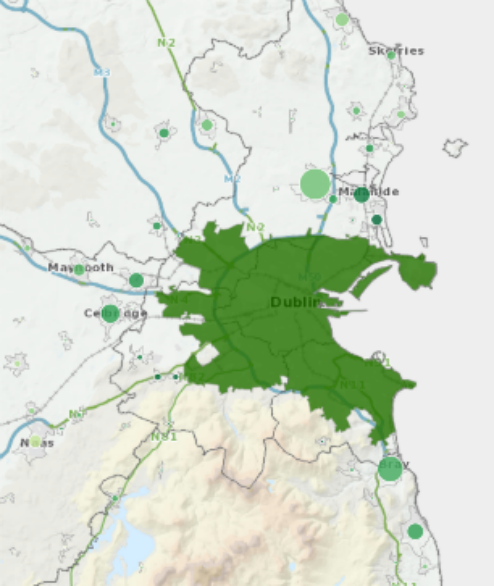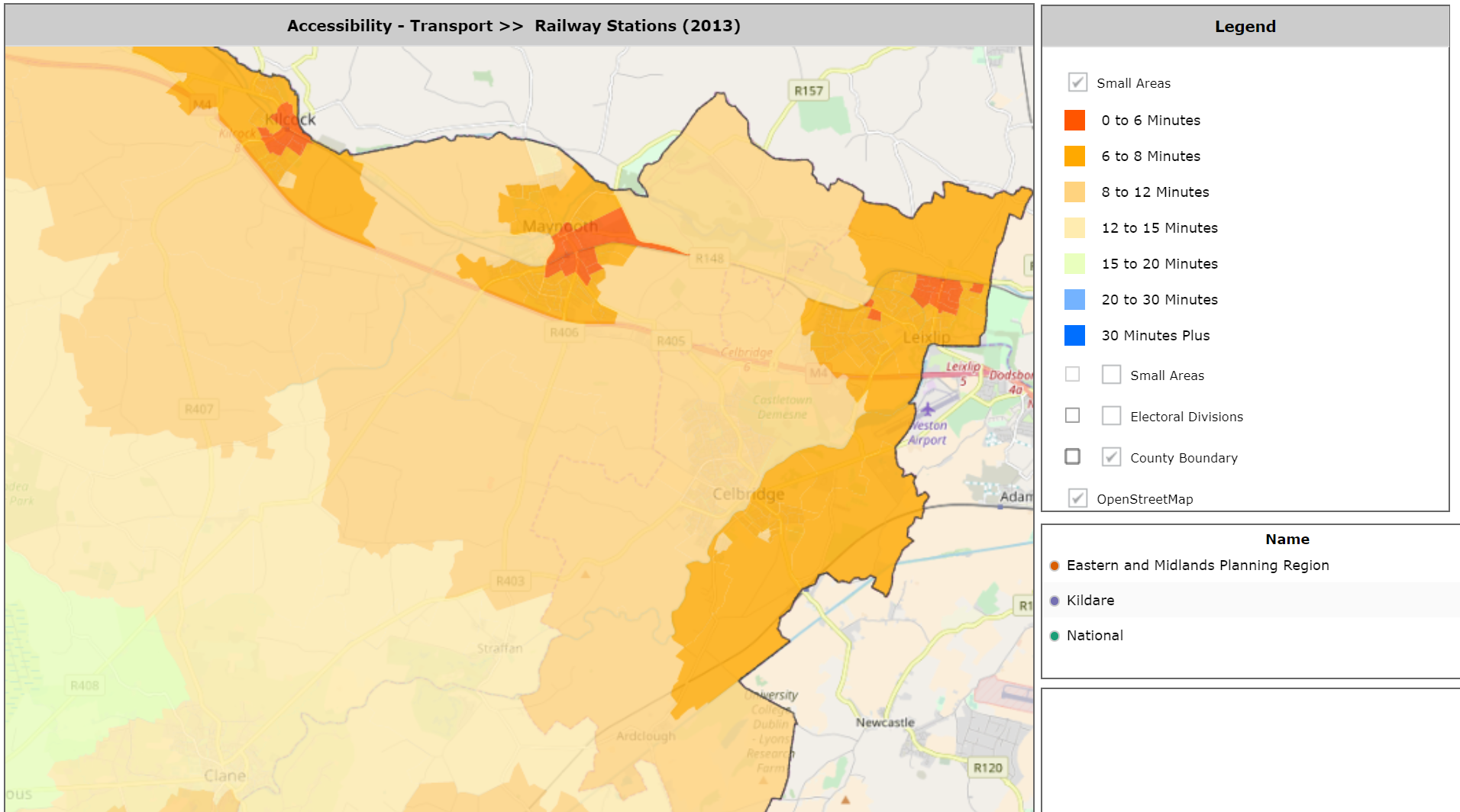 Celbridge is a commuter town with large numbers commuting to Dublin and other locations daily.
Celbridge is a commuter town with large numbers commuting to Dublin and other locations daily.
The Census 2016 "Feeder Towns into Each City" map states that
In 2016 there were 4,541 persons in the settlement of Celbridge who commuted to Dublin city and suburbs which equates to 48.4% of persons at work and living in Celbridge. Of these commuters 2,254 are women and 2,287 are men.
The average journey time of workers who commute from Celbridge to Dublin city and suburbs was 44 minutes and their average age was 41.
The introduction of a train service from Hazelhatch to Grand Canal Dock via the Phoenix Park Tunnel has been a real boost for commuters from Celbridge but very many in our town experience problems accessing the train at Hazelhatch or are uncomfortable with how crowded trains to Grand Canal Dock are. Until the capacity problems on Irish Rail are resolved, bus transport remains crucial for most commuters from Celbridge to Dublin city and suburbs.
Of those who commute to Dublin city and suburbs, the mode of transport was
- 70% (3,144) by car,
- 19.6% (887) by bus
- 6.3% (285) by train
Comparing Celbridge with other towns in the Greater Dublin area like Swords, Malahide, Bray, Greystones, Maynooth and Leixlip that feed into Dublin city and suburbs it’s apparent that the towns closest to rail lines have the highest percentage of population using rail services.
For all these feeder towns except Swords and Celbridge, a large number of residents can easily walk to the train station as they live within 1km. Residents of Swords live at least 4.8km away from Malahide train station.
While a small number of residents on the south side of Celbridge could walk to Hazelhatch train station, most residents live at least 2.5km away and need to cross the only bridge over the Liffey in the town and this suffers from serious congestion. The vast majority of residents are 3-4km away from Hazelhatch train station.

Some trains from and to Hazelhatch are served by a feeder bus. Indicative schedules can be seen on the Irish Rail timetable but it should be noted that the morning buses need to leave earlier than the times indicated on the Irish Rail timetable in order to make it to the station on time.
Kildare Data Hub figures (possibly based off Census 2011 data so a bit dated) show the following commuting patterns:
- The population of Celbridge in the workforce is 8413 and, of these,
- 5075 commute outside Co. Kildare,
- 1010 people work in Celbridge
- 283 people work in Leixlip,
- 252 people work in Maynooth,
- 124 people work in Naas,
- 47 people work in Newbridge,
- 24 people work in Kilcock,
- 22 people work in Clane
- 2123 people work in Celbridge and, of these, 1010 people both reside and work in Celbridge.
The following map, generated from AIRO's Census Mapping Module for Kildare shows how easily the people of North Kildare can get to a train station. Unsurprisingly, Celbridge fares way worse than North Kildare towns on the Maynooth train line. Residents north of the bridge apparently need 8-12 minutes to get to the station (obviously longer in peak-hour!).

Traffic Management Plans pre-2017
Transport Management Plan for Celbridge under 2017-2023 LAP
A Transport Management Plan and Public Transport Strategy for Celbridge was promised in the Celbridge LAP 2017-2023. Objective MTO3.1 states that the Transport Management Plan and Public Transport Strategy should be prepared within 12 months of the adoption of the Celbridge LAP so this should have been completed by August 2018 but Kildare County Council were unable to make this happen.
A transport strategy must be developed in advance of Celbridge's next Local Area Plan. The transport strategy will propose measures to improve walking, cycling, public transport, roads and parking in Celbridge and its environs.
BusConnects
- July 2018 Letter to Celbridge-Leixlip Municipal District Councillors in advance of their briefing on BusConnects Proposals by NTA
- September 2018 Submission on BusConnects Dublin Area Network Redesign
- February 2019 Submission on BusConnects Lucan Core Bus Corridor
- December 2019 Submission on BusConnects Dublin Area Network Redesign
- April 2020 Submission on BusConnects Lucan Core Bus Corridor
Roads, Walking & Cycling
- February 2018 Submission on Proposed Adamstown-Celbridge Link Road
- April 2018 Submission on Traffic Calming on Clane Road, Celbridge
- January 2019 Submission to Kildare County Council on Grand Canal Greenway
- January 2019 Submission to South Dublin County Council on Grand Canal Greenway
- January 2021 Submission to NTA on Greater Dublin Area Transport Strategy Issues Paper
- January 2022 Submission to NTA on Draft Greater Dublin Area Transport Strategy
